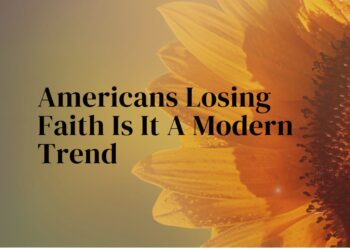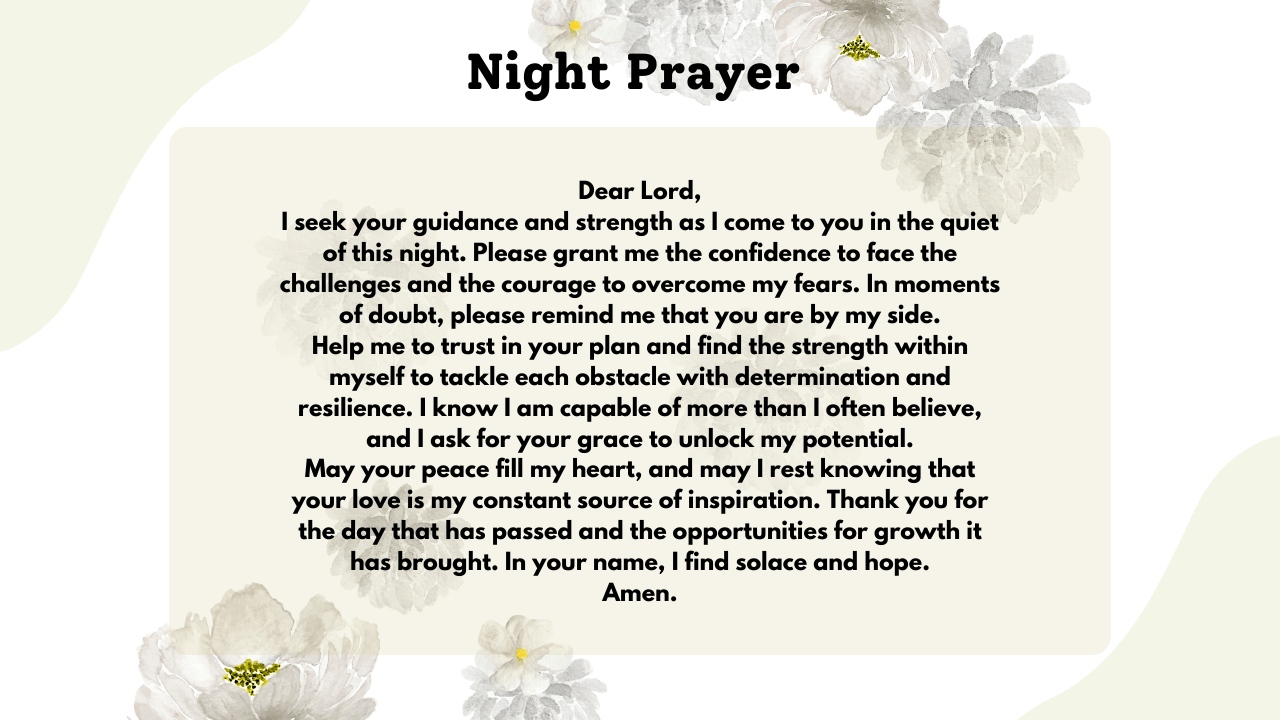No products in the cart.
The Biblical Perspective on Celebrating Easter
This post contains affiliate links.
Easter is a significant Christian holiday celebrating Jesus Christ’s resurrection from the dead. While the Bible does not explicitly mention the observance of Easter as a holiday, the foundation of Easter stems from the biblical accounts of Jesus’ crucifixion and resurrection. In the New Testament, the Gospels of Matthew, Mark, Luke, and John detail the events surrounding Jesus’ death and resurrection, which are central to the Christian faith.
The resurrection of Jesus is considered the most important event in Christianity as it symbolizes victory over sin and death. Followers of Christ believe that through his resurrection, Jesus conquered death and provided believers with the hope of eternal life. The Easter holiday is thus a time for Christians to commemorate and rejoice in the miraculous act of Jesus rising from the dead.
The early Christian Church began to celebrate Easter to honor and remember Jesus’s resurrection. Over time, various traditions and customs have been incorporated into the observance of Easter, such as the Easter bunny, Easter eggs, and special church services. While not explicitly mentioned in the Bible, these traditions have become a significant part of how Easter is celebrated in many cultures worldwide.
While the Bible does not specifically command the celebration of Easter, the holiday holds deep significance for Christians around the globe. It serves as a time to reflect on the Christian faith’s foundational beliefs and rejoice in the hope of salvation through the resurrection of Jesus Christ. The biblical perspective on celebrating Easter emphasizes the core teachings of Christianity and the importance of Jesus’ victory over death.
Origin of Easter traditions
Easter, widely celebrated as a Christian holiday, has various traditions observed worldwide. The most notable symbol of Easter is the Easter egg, which originates in ancient pagan festivals and symbolizes new life and rebirth. As these pagan traditions merged with Christianity, the egg took on new symbolism, representing the tomb from which Jesus emerged after his resurrection.
Today, the Easter egg is a popular symbol of the holiday, with elaborate decorations and egg hunts being common customs in many cultures.
Another popular tradition associated with Easter is the Easter bunny, known for delivering eggs and treats to children. The Easter bunny originated in German folklore, where it was a symbol of fertility and new life. Over time, the Easter bunny became a part of Easter celebrations in many countries, especially in Western culture. Children eagerly anticipate the visit of the Easter bunny and the treats it brings, adding to the joy and festivity of the holiday.
In addition to eggs and bunnies, Easter also incorporates the tradition of Easter baskets filled with candies, toys, and other goodies. The basket symbolizes the harvest and new beginnings, reflecting Easter’s spirit of abundance and renewal. Families often exchange Easter baskets as a token of love and celebration, strengthening bonds and creating lasting memories during this festive time.
Moreover, the Easter lily is a significant symbol of Easter in Christianity, representing purity, grace, and the resurrection of Jesus Christ. The white lily’s trumpet shape is said to embody the resurrection and announce Christ’s rising from the dead. Churches around the world adorn their altars with Easter lilies during the Easter season, enhancing the holiday’s spiritual significance for believers.
Easter traditions are rich in symbolism and history. They blend ancient rituals with Christian beliefs to create a vibrant and meaningful celebration of faith and renewal. Each custom associated with Easter has its unique significance, adding to the depth and beauty of this joyous holiday.
Historical Controversies Surrounding Easter
Throughout history, Easter has been the subject of various controversies and disputes, both regarding its origins and the way it is celebrated. One of the main historical controversies surrounding Easter is its relationship with earlier pagan traditions. Some argue that Easter coincides with ancient spring festivals celebrating fertility and new life, such as the festival of Eostre.
Another source of historical dispute is the calculation of the date of Easter. The First Council of Nicaea in AD 325 established that Easter should be celebrated on the first Sunday after the full moon following the vernal equinox. However, differences in the use of the Julian and Gregorian calendars have led to discrepancies between the Western and Eastern Christian Churches regarding the date of Easter.
During the Reformation in the 16th century, further controversies arose regarding the celebration of Easter. Some reformers criticized certain Easter customs, such as the use of Easter eggs and the Easter bunny, as remnants of paganism. This led to debates within Christianity about the appropriate way to observe Easter.
The history of Easter is not without its controversies and disputes. From its possible pagan origins to disagreements over the calculation of its date and debates about the appropriateness of certain customs, Easter has been a subject of historical contention within the Christian faith.
The symbolism of Easter in Christianity
The symbolism of Easter in Christianity is rich with significance and deep-rooted in the faith of believers. For Christians, Easter represents the most significant event in the Christian calendar—the resurrection of Jesus Christ from the dead. This miraculous event is the cornerstone of the Christian faith, affirming the belief in Jesus’ divinity, seen as the promise of eternal life for all who believe in Him.
The story of Easter begins with the crucifixion of Jesus, which is commemorated on Good Friday. Christians believe that Jesus willingly sacrificed Himself on the cross to atone for humanity’s sins, offering redemption and salvation to all who accept Him as their savior. However, the story does not end on Good Friday—three days later, on Easter Sunday, Jesus rose from the dead, conquering death and sin once and for all.
The symbolism of Easter is encapsulated in the imagery of new life, hope, and rebirth. Jesus’ resurrection is seen as a triumph over darkness and a promise of eternal life for all who believe in Him. The Easter story is a powerful reminder of the transformative power of faith and the victory of love over sin and death.
In Christian tradition, Easter is a time of joyous celebration and reflection. Churches worldwide are adorned with flowers, representing new life and rebirth. Many Christians participate in Easter services, where they sing hymns of praise and thanksgiving for Jesus’s resurrection.
Easter is also a time of spiritual renewal, as believers are reminded of the importance of living out their faith daily.
The symbolism of Easter in Christianity is a profound reminder of the core tenets of the Christian faith – love, redemption, and the promise of eternal life through Jesus Christ. It is a time of celebration, reflection, and renewed hope for believers worldwide as they commemorate their faith’s central event.
Easter customs in different cultures
Easter is celebrated in various ways throughout the world, each culture adding its unique customs and traditions to the holiday. These diverse practices showcase the richness and diversity of how Easter is observed globally.
In Greece, Easter, known as Pascha, involves unique traditions such as cracking red eggs. This symbolic gesture represents Jesus Christ’s resurrection and the cracking of the rock tomb. Families and friends engage in egg-cracking contests during their Easter feasts.
On the other hand, in Sweden and other Scandinavian countries, children dress up as Easter witches called “Påskkärringar.” They go from house to house, offering drawings and paintings in exchange for candy and treats, reminiscent of Halloween customs in other parts of the world.
Latin American countries like Mexico have a blend of indigenous and Christian traditions during Easter. One of the notable customs is the creation of intricate sawdust carpets, known as “alfombras,” laid out on the streets for processions during Holy Week. These colorful carpets depict various religious motifs and scenes.
Moreover, Easter, or “Fasika,” is a vibrant and significant celebration in the Orthodox Christian calendar in Ethiopia. Pilgrims flock to churches, especially the renowned rock-hewn churches of Lalibela, for prayer services and elaborate ceremonies. The faithful fast and attend church services as part of their Easter observance.
Jewish communities worldwide also have their unique way of celebrating Passover, which coincides with Easter. The Seder meal, a ceremonial feast commemorating the Israelites’ liberation from slavery in ancient Egypt, is a central part of the Passover celebration.
The Passover traditions and rituals have influenced certain Easter customs in regions with a significant Jewish population.
The diverse Easter customs across different cultures highlight the universal significance of this holiday and how it brings communities together in celebration of faith and tradition.
Exploring Modern-Day Practices Associated with Easter
As a religious holiday, Easter has long been celebrated by Christians worldwide. However, over the years, Easter has also become a secular celebration marked by various modern-day practices that have evolved from religious and cultural influences.
One of the most common modern-day practices associated with Easter is the tradition of decorating and hunting for Easter eggs. Eggs have been seen as a symbol of fertility and rebirth since ancient times, and this tradition has seamlessly blended into Easter celebrations. Children, in particular, enjoy the thrill of searching for hidden Easter eggs, whether natural or artificial, as part of this joyful custom.
Another prevalent practice linked to Easter is the Easter bunny, a character that has become synonymous with the holiday. The origins of the Easter bunny can be traced back to German folklore, where it symbolized fertility and new life. Today, the Easter bunny is a beloved figure that brings Easter eggs and treats to children, adding to the festive spirit of the holiday.
In addition to these traditional practices, modern-day Easter celebrations often include elaborate feasts and gatherings with family and friends. Special Easter meals featuring roasted lamb, hot cross buns, and colorful desserts are prepared to mark the occasion. Family gatherings allow loved ones to come together, share a meal, and exchange gifts, fostering unity.
The commercial aspect of Easter has also become more pronounced in modern times, with businesses capitalizing on the holiday season to promote sales and offer special promotions. From Easter-themed decorations to gifts and greeting cards, the market is flooded with products geared towards Easter celebrations, appealing to both young and old alike.
Moreover, with the advent of technology and social media, modern-day Easter practices have extended to virtual celebrations and online activities. Families and friends separated by distance can connect through video calls, share Easter greetings on social platforms, and participate in virtual Easter egg hunts, keeping the festive spirit alive even in challenging circumstances.
The modern-day practices associated with Easter reflect a harmonious blend of religious traditions, cultural customs, and contemporary influences. As the holiday continues to evolve, these practices enrich the celebration of Easter, ensuring that it remains a joyous and meaningful occasion for people of all ages.
Easter Celebrations – A Matter of Faith and Tradition
Easter, or Resurrection Sunday, is a significant religious festival for Christians worldwide. However, there is an ongoing debate among believers regarding the observance of Easter and its biblical foundations.
Many Christian denominations view Easter as a central event in the Christian faith, commemorating the resurrection of Jesus Christ from the dead. The Bible does not explicitly mention the observance of Easter as a holiday, but it does record the events surrounding Jesus’ crucifixion and resurrection.
The Gospel accounts of Matthew, Mark, Luke, and John describe the crucifixion, burial, and resurrection of Jesus, which are central to the Easter story.
Some Christians argue that since the Bible does not command the celebration of Easter, it is unnecessary to observe it as a religious holiday. They believe the focus should be on Jesus’ teachings rather than the specific events. However, many Christians see Easter as an opportunity to rejoice in Jesus’ victory commemoration over death and sin, emphasizing the hope and salvation that his resurrection brings.
Despite the lack of explicit biblical commandments to celebrate Easter, the tradition has been integral to Christian worship and cultural heritage for centuries. The early Christian church adopted many existing pagan spring festivals and traditions, such as the celebration of the vernal equinox, to spread the message of Christianity. Over time, these customs evolved into the Easter celebrations known today.
While the Bible may not explicitly instruct believers to celebrate Easter, the festival holds deep religious and cultural significance for millions worldwide. Whether seen as a matter of faith, tradition, or both, Easter continues to be a time of reflection, renewal, and rejoicing for Christians everywhere.
Key Takeaway:
Key Takeaway:
Although the Bible does not explicitly mandate the celebration of Easter, Christians worldwide observe it as a significant religious holiday to commemorate the resurrection of Jesus Christ. Easter traditions are rooted in Christian and pagan practices, while historical controversies and debates have surrounded its observance throughout centuries.The symbolism of Easter is profound in Christianity as it symbolizes new life, hope, and redemption through Jesus’ victory over death. Various cultures have unique Easter customs, contributing to the rich tapestry of global celebrations.
Modern-day Easter practices include egg hunts, parades, and the Easter Bunny, which have become synonymous with the holiday. Despite alternative views on the observance of Easter among certain Christian denominations or individuals, the spirit of Easter continues to resonate as a time of reflection, renewal, and joy for many believers worldwide.
Conclusion
Easter is a meaningful time for Christians worldwide, commemorating the resurrection of Jesus Christ. While specific observance is not mandated in the Bible, Easter traditions have evolved, blending cultural practices with Christian beliefs.
Despite historical controversies and modern commercialization, Easter remains a time of hope, renewal, and faith, celebrated in various ways across cultures. Its universal themes of love and salvation continue to resonate, reminding us of the profound significance of this holiday each year.
This post contains affiliate links.













